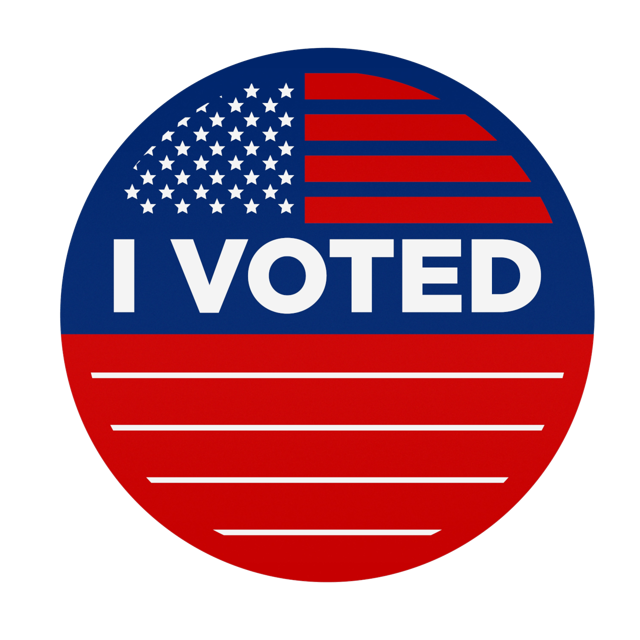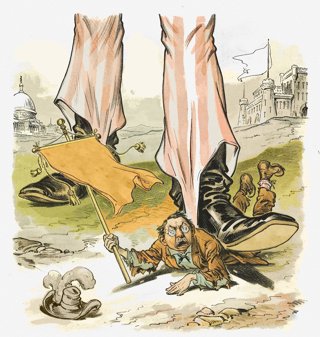December 2023
A modern look at civil liberties through the lens of the characters in my latest book: Two Wars, One Heart. It expresses the importance of discerning evaluation of political leaders, drawing lessons from historical patterns of authoritarianism and democracy. Highlighting the role of democratic societies in protecting individual rights and freedoms, and the dangers posed by authoritarian regimes that curtail civil liberties.
Last updated 20 months ago
Will publish on 06/07/2026
Your Vote Counts: Learn from History
By Monica Granlove
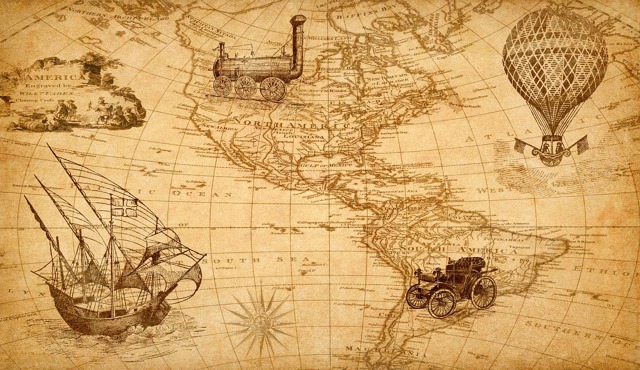
As we approach election years, it becomes imperative for voters to engage in a discerning evaluation of political leaders. Your evaluation should go beyond merely listening to their rhetoric; instead, it involves asking fundamental questions about trust and priorities. Are these leaders genuinely committed to prioritizing the well-being of me and my community, or are personal agendas at the forefront? Is there a genuine concern for the community's welfare, or is the leader exploiting fear to garner votes? Furthermore, one must consider whether the leader is authentically engaging with and uplifting the community, or if there's a manipulative effort aimed solely at gaining popularity. These inquiries are essential for making informed decisions that align with the values and interests of the electorate.
History consistently reveals patterns and repetitions, wherein certain events, themes, or errors recur across various epochs. Over the course of history, discernible cycles have emerged, characterized by movements toward authoritarianism followed by subsequent pushes for democracy. Notable instances include the aftermath of both World War I and II, where authoritarian regimes ascended in Europe, only to be followed by a renewed commitment to democratic principles post-World War II.
These historical cycles bear invaluable lessons for us. They prompt reflection on the societal structures we prefer and the kind of governance we find most conducive to our collective well-being. The choice between living in a democratic society or under authoritarian rule is a critical one, bearing profound implications for the level of individual freedoms, policy choices, and the overall quality of life.
In a democratic society, the emphasis lies in affording individuals the right to participate in the decision-making process and have a say in policies that impact their lives. It encourages diversity of thought, policy choices, and the protection of individual liberties. Conversely, authoritarian rule tends to centralize power, often limiting personal freedoms and stifling dissent.
As we navigate the complexities of governance, it becomes essential to question the motives behind our electoral choices. Are we electing leaders who genuinely support democratic values, or are we swayed by popularity or charismatic rhetoric? A critical consideration lies in whether our votes align with candidates who prioritize policy choices and the well-being of the community over mere eloquence or popularity.
History serves as a guidepost, urging us to make thoughtful decisions about the kind of society we wish to inhabit. The lessons of the past underscore the importance of safeguarding democratic principles, making informed choices, and ensuring that the leaders we elect are true advocates for the values that underpin a just and equitable society
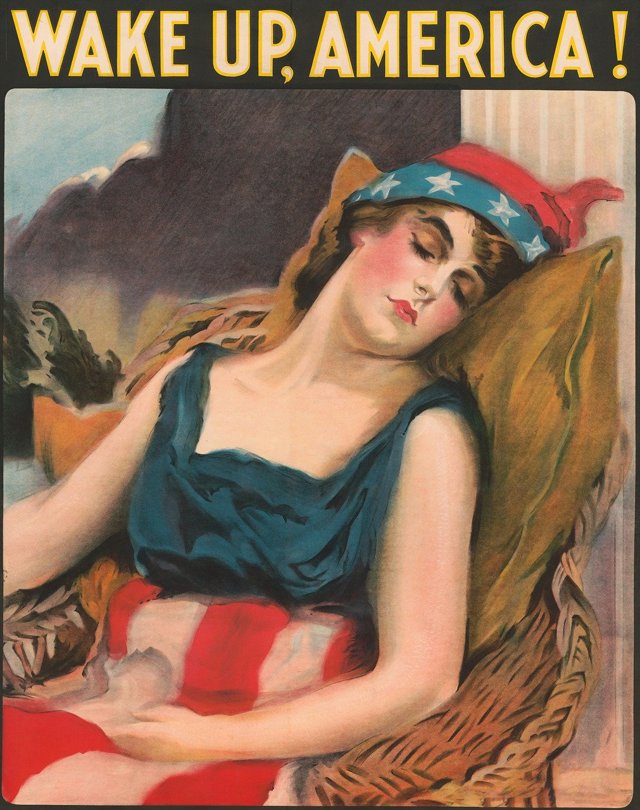
Let’s ground ourselves in what democracy means and what it does not mean.
Democracy stands as a form of governance wherein political power is entrusted to the people, either directly or through elected representatives. This system is characterized by active citizen participation in decision-making processes and a steadfast commitment to safeguarding individual rights and freedoms.
In a democracy, the bedrock of governance lies in the consent and will of the people, establishing their ultimate authority and legitimizing the government. Citizens possess the right to engage in the decision-making process and select their leaders through transparent, free, and fair elections. This democratic ethos operates under the unwavering rule of law, where legal principles apply universally, without exemption for those in positions of power. The notion that no one is above the law underscores the importance of safeguarding individual rights and liberties.
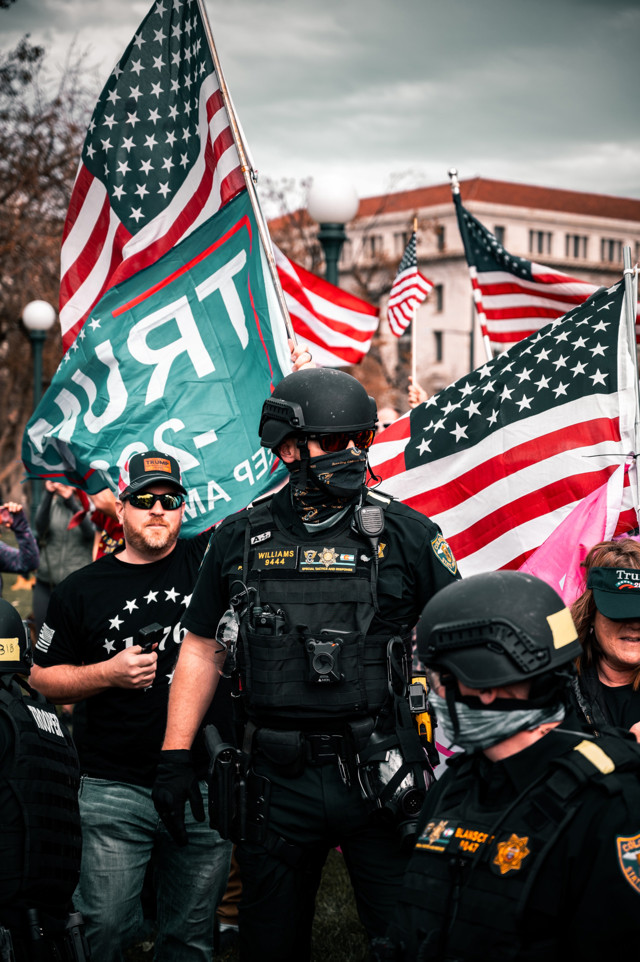
Yet, in the contemporary political landscape, questions arise about leaders who may perceive themselves as beyond legal constraints. Instances where leaders act as if they are above the law challenge the very essence of democracy. Such actions can erode the foundational principles that protect citizens from arbitrary government actions.
Democratic systems are designed with checks and balances to forestall the abuse of power and shield citizens from capricious government actions. However, there are instances where laws passed by elected leaders seemingly encroach upon individual choice. Assessing the impact of these laws on personal freedoms is essential, as some decisions may curtail the autonomy and choices of citizens.
The integrity of the democratic process is also scrutinized when leaders or former leaders make unverified claims, casting doubt on the voting process. History serves as a stark reminder that when leaders with authoritarian inclinations ascend through democratic means, the very liberties they were elected to protect can be jeopardized.
Democracy thrives on the active participation of citizens, manifesting in various forms such as voting, advocacy, peaceful assembly, and engagement in public discourse. Elected representatives bear the responsibility of responsiveness to the needs and preferences of the electorate, and regular elections provide a mechanism for citizens to hold leaders accountable and instigate necessary changes.
In contemporary politics, an essential aspect lies in assessing how politicians either champion or compromise civil liberties. Civil liberties encompass fundamental rights and freedoms guaranteed to individuals by the government, aiming to shield citizens from arbitrary actions and ensure basic human rights. These liberties are intrinsic to the fabric of a democratic society, striking a delicate balance between individual freedom and the imperative of social order. An examination of politicians' track records offers valuable insights into their dedication to upholding these cherished principles.
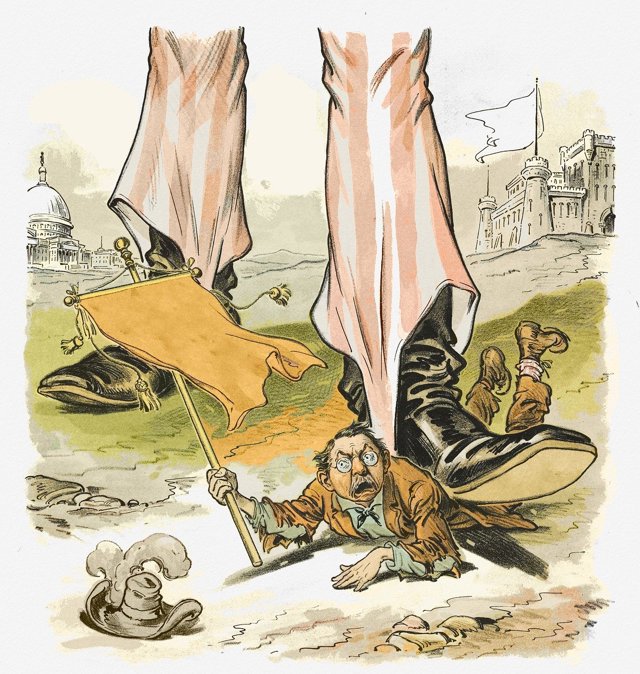
Authoritarian and totalitarian regimes intentionally curtail civil liberties to quell dissent and assert control, often imposing restrictions on freedom of speech, assembly, and political participation. Studying historical totalitarian figures provides valuable insights into their methods of acquiring and consolidating power, particularly in their subtle erosion of civil liberties, often unnoticed by the populace. Employing tactics such as manipulation of language ('for the good of...'), instilling fear, and exploiting religion to sway public opinion, these leaders gradually chip away at the foundations of democracy.
A poignant case study of this transformation is Adolf Hitler in Germany during the early 1930s. Hitler ascended to power democratically, winning the Nazi Party a substantial mandate in the 1932 and 1933 elections. Initially appointed as Chancellor in 1933, President Paul von Hindenburg believed this would control Hitler's influence. However, Hitler swiftly moved to consolidate power, exploiting the Reichstag Fire in February 1933 to enact the Reichstag Fire Decree, suspending civil liberties. The subsequent Enabling Act, passed in March 1933, granted Hitler unchecked authority, effectively ending parliamentary democracy.
The erosion of democratic institutions continued as Hitler and the Nazis systematically suppressed political opposition, exemplified by the Night of the Long Knives in 1934, which witnessed the execution of rivals. The Nazi regime dismantled independent political and judicial institutions, cultivating a cult of personality around Hitler, who presented himself as the embodiment of the German nation. The Nazi ideology infiltrated all facets of public and private life, controlling education, culture, and the economy.
This transformation culminated in a totalitarian state, marked by complete control over every aspect of German society. Propaganda, orchestrated mass rallies, and the establishment of the Gestapo (secret police) exemplified the mechanisms used to shape public opinion and suppress dissent. Hitler's aggressive foreign policies, notably the invasion of Poland in 1939, escalated into World War II, intensifying totalitarian control through the occupation of territories.

The historical trajectory of Hitler's Germany illustrates a stark transformation from democratic to an authoritarian regime to a totalitarian state, where an initially democratically elected leader systematically dismantled democratic institutions. This serves as a cautionary tale about the potential consequences when an authoritarian leader consolidates power and undermines the foundations of democracy.
At its essence, the bedrock of our individual and civil liberties provided by democracy lies in the fundamental right to choose. This encompasses the autonomy to select books for ourselves or our children, the freedom for parents to make informed choices about their children's care, and the right to make personal decisions regarding our own well-being, including choices related to healthcare, such as abortion. Yet, challenges arise when certain groups pursue their own agendas, sometimes at the expense of others.
The right to freely express opinions without fear of censorship or reprisal is integral to a thriving democracy. Choosing to voice our thoughts is a cornerstone of democratic participation, and any stifling of this right undermines the very essence of choice. Similarly, the freedom to practice any religion, or none at all, without governmental interference is essential, as it ensures that personal beliefs remain sacrosanct. In fostering a truly democratic society, it is imperative that we safeguard the right to choose, ensure fairness in legal processes, and resist the encroachment of power that may compromise our individual liberties. This commitment requires vigilance against any erosion of rights, especially when justified under the guise of maintaining order or public safety.
The protection from unwarranted government intrusion into personal and private affairs, coupled with the right to a fair and impartial legal process, including a fair trial, is vital for preventing a culture of fear. Discrimination based on beliefs or characteristics such as race, gender, religion, or ethnicity is antithetical to the principles of equality and justice. It's disheartening to observe instances where individuals feel entitled to judge others based on such attributes while vehemently objecting when subjected to similar scrutiny.
Shifts in public opinion, often driven by fear or a perceived crisis, have the potential to erode tolerance for measures that encroach upon civil liberties. Governments, individuals within these governments, or those seeking office exploit public concerns to rationalize the implementation of restrictive policies. Fear, in particular, becomes a tool to stifle dissent or criticism, as politicians may brand dissenters as unpatriotic or threats to national security, fostering an environment where individuals are reluctant to express opposing views.
The unequal application of laws can have a disproportionate impact on specific groups, influenced by factors such as race, ethnicity, religion, or political affiliation. This selective enforcement poses a significant threat to the principle of equal protection under the law, undermining the very foundation of justice and fairness in a democratic society. In times of heightened public anxiety, it is crucial to scrutinize policies and actions that may infringe upon civil liberties, ensuring that the principles of equality and justice remain steadfast even in the face of societal shifts and perceived crises.
Voters have many influences including their own preferences, family opinions, community opinions and most of all media. The media serves as a primary source of information for voters. The extent and quality of information available through the media can impact voters' understanding of political issues and candidates, influencing their decisions at the ballot box. The media has the power to influence which issues and topics are perceived as important by the public. By highlighting certain issues and downplaying others, the media can shape the public agenda and influence voters' priorities.

Media serves as a key source of information about political events, candidates, and policies. Over time, exposure to media content contributes to the political socialization of individuals, shaping their political beliefs, values, and attitudes. Coverage of political candidates, their campaigns, and their positions allows voters to form opinions about the individuals seeking office. The tone, language, and emphasis used in media coverage can influence voters' perceptions of candidates.
The way the media presents information, or frames stories, can influence how people perceive and interpret political events. Media outlets can frame issues in ways that emphasize certain aspects or perspectives, influencing public opinion on those issues. Endorsements by newspapers or other media outlets can carry significant weight. When a media organization expresses support for a particular candidate or political position, it can influence the opinions of its audience.
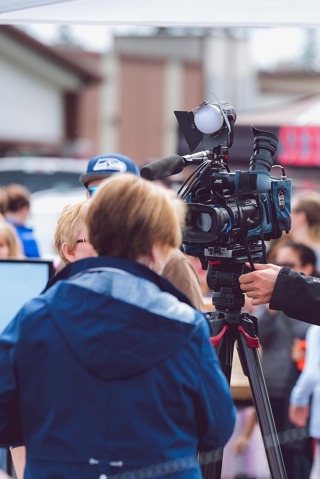
It's important for voters to be aware of media influences and to consume information critically, considering diverse sources and perspectives. Additionally, media literacy and an understanding of how media can shape opinions are crucial components of an informed electorate in a democratic society.
The media plays a pivotal role as a primary source of information regarding political events, candidates, and policies. As individuals engage with media content over time, it becomes a powerful force in shaping their political beliefs, values, and attitudes, contributing to the process of political socialization. When it comes to political candidates, campaigns, and their positions, media coverage serves as a crucial factor influencing voters' opinions. The tone, language, and emphasis employed in this coverage can significantly impact how voters perceive candidates.
Beyond simply conveying information, the media possesses the ability to frame stories, shaping how individuals perceive and interpret political events. The framing of issues by media outlets can accentuate specific aspects or perspectives, thereby influencing public opinion on those particular matters. Furthermore, the weight of endorsements from newspapers or other media entities should not be underestimated. When a media organization expresses support for a candidate or political stance, it wields considerable influence over the opinions of its audience.
Given these influential roles of the media, it becomes imperative for voters to be discerning and critically evaluate the information they consume. Being aware of media influences and approaching information with a critical mindset is vital. This involves considering diverse sources and perspectives to form a well-rounded understanding of political matters. Moreover, cultivating media literacy and understanding how media can shape opinions are essential components for an informed electorate in a democratic society. By exercising such critical awareness, voters contribute to the robust functioning of a democratic system, ensuring that public opinion is shaped through informed and thoughtful engagement with media content.
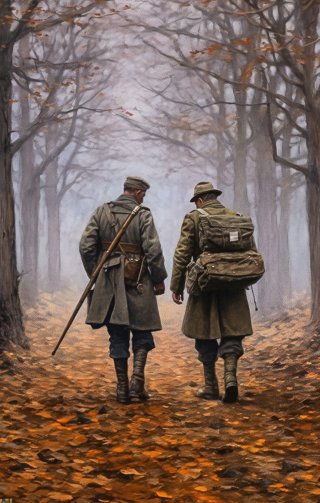
Bruno, Karla, Eli, Miriam, Rabbi Solomon, Ilse, and even Friedrich—characters inspired by real individuals—all shared a fundamental belief. Their common desire was to shape their lives according to their own choices, free from the apprehension of backlash, and they held a deep respect for the choices made by others. Whether it involved matters of religious or political beliefs, or the decision to align with a particular group, their yearning was for autonomy to make choices.
However, their pursuit of individual and civil liberties faced gradual erosion through various means—propaganda, fear sown by communities, and intimidation orchestrated by the government. Bit by bit, their right to choose, a cornerstone of their freedoms, was chipped away. What remained obscured from many was the understanding that the loss of a seemingly small liberty could serve as a foundation for more substantial encroachments on their freedoms. The narrative of these characters echoes the subtle and insidious nature of the erosion of personal freedoms, underscoring the importance of safeguarding individual liberties to preserve the integrity of choice and autonomy.
